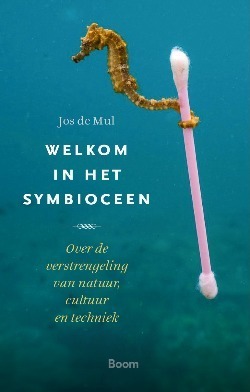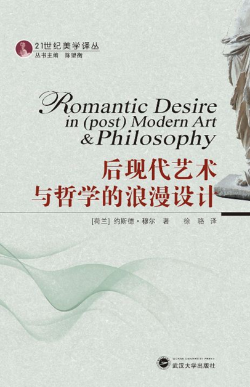Jos de Mul. Transnationalizing tragedy. Comment on Jürgen Habermas' lecture "How Europe faces the challenge of transnationalising democracy". Rotterdam, October 10, 2014.
Dear professor Habermas!
In the past decades, you have been an inexhaustible supporter of the Idea of Europe and of the European Union, as well as a profound analyst of the forces that threaten to undermine the ‘faltering project’ of Europe (to quote the title of the English translation of your book Ach, Europa). In the lecture you gave this afternoon, you focused on one of these threats: the democratic deficit of the European Union.
I fully share your enthusiasm for Europe. Just like you, my enthusiasm is closely connected with my personal history. Born a decade after the Second World War I had the privilege to grow up in a democratic and peaceful European welfare state, which enabled me, moreover, to enjoy the great variety of European culture. However, only in the past ten years, in which I had the opportunity to live and work in the United States and in China for some time, I became fully aware of the fact that I’m not only Dutch, but a European as well.
This does not mean that it is easy to define Europe. Europe in many respects remains a mythic phenomenon. Even the most basic questions – What is Europe? Where is Europe? When is Europe? and (especially since the Euro crisis that has strongly undermined the public support of the European Union) Why is Europe? – are very hard to answer.
However, without doubt, the ancient Greek invention of democracy and its further development in the modern era, belongs to the highlights of Europe’s present identity. I also subscribe to the diagnosis that in the present situation both democracy and the welfare state are in danger because of the reign of neoliberal market economy, that in its global manifestation, no longer cannot be controlled by the traditional nation state. Moreover, the commercialization and fragmentation of the public sphere, which is so essential for a deliberative democracy, also has contributed to the democratic deficit of the European Union.
Moreover, as you have explained in recent publications and also in your lecture today, the Euro crisis resulted in a substantial empowerment of the executive powers of the European Union: the European Commission, the Eurogroup of the European Council and the European Central Bank, whereas at the same time the role of the national and European parliaments was strongly undermined. As you’ve written in ‘Heraus aus dem Teufelskreis’, never before have democratically elected governments been so carelessly replaced by allies of the neoliberal market economy as in the case of Mario Monte in Italy and Lukas Papadimos in Greece.
However, although I share your dedication to Europe and your analysis of the loss of normative and democratic legitimacy of the European Union, I have serious doubts about the solution you suppose: a strengthening of the power of the European parliament, combine with the formation of European political parties and elections, and the attribution of a “doubled sovereignty” to Europeans. The key idea of your thought experiment is to create a kind of ego split in the European political subject. On the one hand this subject remains part of the popular sovereignty of the nation state to which she or he belongs, on the other hand (s)he is a citizen of Europe. With this elegant solution you want to take away the fear of Euro-skeptics from the right and the left side of the political spectrum that Europe will become the Monster of Brussels, a European superstate, by keeping the nation states as guarantors of the level of justice and freedom already achieved, and at the same time transform the European Union into a “ transnational democracy” which not only would solve the democratic deficit of the present Union, but also will enable Europe to will it really restore the balance in power relations within the European Union, solve the decline of the political culture in the European countries, stop the disintegration of the achievement of the welfare state, and live up its role in world politics.
I doubt whether your solution is realistic and even whether it is desirable. Let me elucidate my doubt by formulating three clusters of questions focusing respectively on 1) the perspective of the member nation states, 2) on the perspective of the European peoples, and 3) on the perspective of the European Union.
1). First, is it realistic to expect that the member states will agree on transferring a substantial part of their legislative and executive power to the supranational level, whereas several member states - the UK and the Netherlands being the clearest examples - are marching into the opposite direction and are preparing to return previously-Europeanized responsibilities to the nation-state?
2) Second, in your view “ the poll driven political parties should do much more to explain to ordinary citizens the relevance of what happens in the remote seeming locations of Strasbourg and Brussels, but they stubbornly refuse to do so”.[1] When we look at the massive resistance, both in the public sphere on the streets and to the successes of Eurosceptic parties in the elections of almost all member states, isn’t the real reason for the lack of enthusiasm for Europe the result of the fact that many people in Europe are not ignorant, but fully aware of what happens in these remote places? So far, Europeanization means a hegemonic unification through the authoritarian enforcement of a capitalistic monoculture. As Wolfgang Streeck has argued in Gekaufte Zeit: Die vertagte Krise des demokratischen Kapitalismus (2013) and further underpinned in a recent article, the currency union “has in actual practice been anything but a vehicle for an ‘ever closer union among the peoples of Europe’. As a point of fact, ‘United Europe’ has never been so disunited in the last half-century as it is today” (Streeck 2014, 213). In addition one could ask if ethical obligations and solidarity on European scale are really a realistic option. Moreover, the ego split of the political subject caused by the double sovereignty can easily lead to a tragic tension between national and European solidarity. Moreover, in a neoliberal societies there is another ego split that undermines solidarity: the split between the citizen and the consumer.
3) This brings me to my third reflection, from the perspective of the European Union. The double sovereignty you are proposing, prevents the European Union to become a federal nation-state in the full sense of the word. However, what exactly the status is, remains unclear. In 2001, in Why Europe needs a constitution?, you speak of a “a new political form, something more than a confederation but less than a federation—an association of sovereign states which pool their sovereignty only in very restricted areas to varying degrees, an association which does not seek to have the coercive power to act directly on individuals in the fashion of nation states.” [2]. And in Zur Verfassung Europas – Ein Esssay (2011), you call it „a federation without a state“ However, in order to keep the balance between the national and the supranational perspective, it seems unavoidable the European Union you are envisioning, has the character of a confederation. After all, there is only a limited conferral of powers and the member states have the right to leave the union.
However, from a historical perspective, confederations have always been transitory phenomena, they function either as a transitional stage in a process of unification and federalization (Republic of the Seven United Netherlands, US, Switzerland being the examples) or a process of disintegration (think of Serbia and Montenegro between 2003 and 2006, and perhaps this is also the fate of Belgium, as the successful New Flemish Alliance in Belgium, explicitly advocates a confederation).
But even in the case that an act of magic would lead to a European supranational democracy, the question remains if this will really restore the balance in power relations in the European Union, or rather consolidate the imbalance that at least partly has been caused by the monetary union. Will it really solve the decline of the political culture in the European countries? Will it really stop the disintegration of the achievement of the welfare state? And as to the challenge to live up its role in world politics, should Europe compete with US or China as to military budget in order to “shoot our way to oil and credit”? [3]
Recently, the already mentioned Wolfgang Streeck has argued in an article in Constellations, we cannot speak meaningfully about the future of democracy, in Europe or elsewhere, without at the same time speaking about the future of capitalism. Put otherwise, we cannot do democratic theory without political economy”. [4] Because “Neoliberal capitalism and electoral democracy can live together peacefully provided democracy is deprived of its capacity for egalitarian political intervention in the “free play of market forces.” (idem)
This brings me to a tragic conclusion. Next to democracy tragedy is one of the lasting achievements of Athens. In my view it is no coincidence that tragedy developed in the same place and at the same time as democracy. Greek tragedy was the reflection on the advantage and disadvantage of democracy for life. Greek tragedies show heroes who end up in impossible situations because their freely made decisions lead to a catastrophe. The harder they try to escape their destiny, the more do they realize it. In my view you are right that the democratic deficits of the European Union have been intensified by the Euro crisis. However, I fear that the solution you propose may well bring us closer to the catastrophe most of us want to avoid.
However, I admit that I have no easy solutions for the democratic deficits you so sharply analyzed in your lecture today. After all, not having an easy way out is the very characteristic of tragedies. I agree with you that a nostalgic longing for Kleinstaaterei, of which, in your essay ‘Demokratie oder Kapitalismus’ accused Wolfgang Streeck, offers no solution . However, I neither defend a defeatist position. Greek tragedies offer comfort, Aristotle already explained in his Poetics, by teaching us to practice prudency. What we can learn from them, is that aiming at the good, when this aim is accompanied by miscalculation, hubris or being blindly convinced of being in the right, often results in its very opposite. Sometimes it is better to try to step out of the logic of catastrophe before it is too late. As the Dutch proverb reads: "It's better to turn around halfway, then to get lost completely". No one has grasped this tragic wisdom better than the sixteenth-century humanist Michel de Montaigne, when he wrote, reflecting on heresy: “I will follow the good side right to the fire; but not into it if I can help it”
Thank you for your attention.
[1] Habermas (2011) ‘A pact for or against Europe?’ p.87).
[2] Habermas (2001) ‘Why Europe needs a constitution’, p.5
[3] Streeck (2014), ‘Small-State Nostalgia? The Currency Union, Germany, and Europe: A Reply to Jürgen Habermas’, Constellations Vol. 21, no.2 p. 221
[4] Ibid, p.218.









